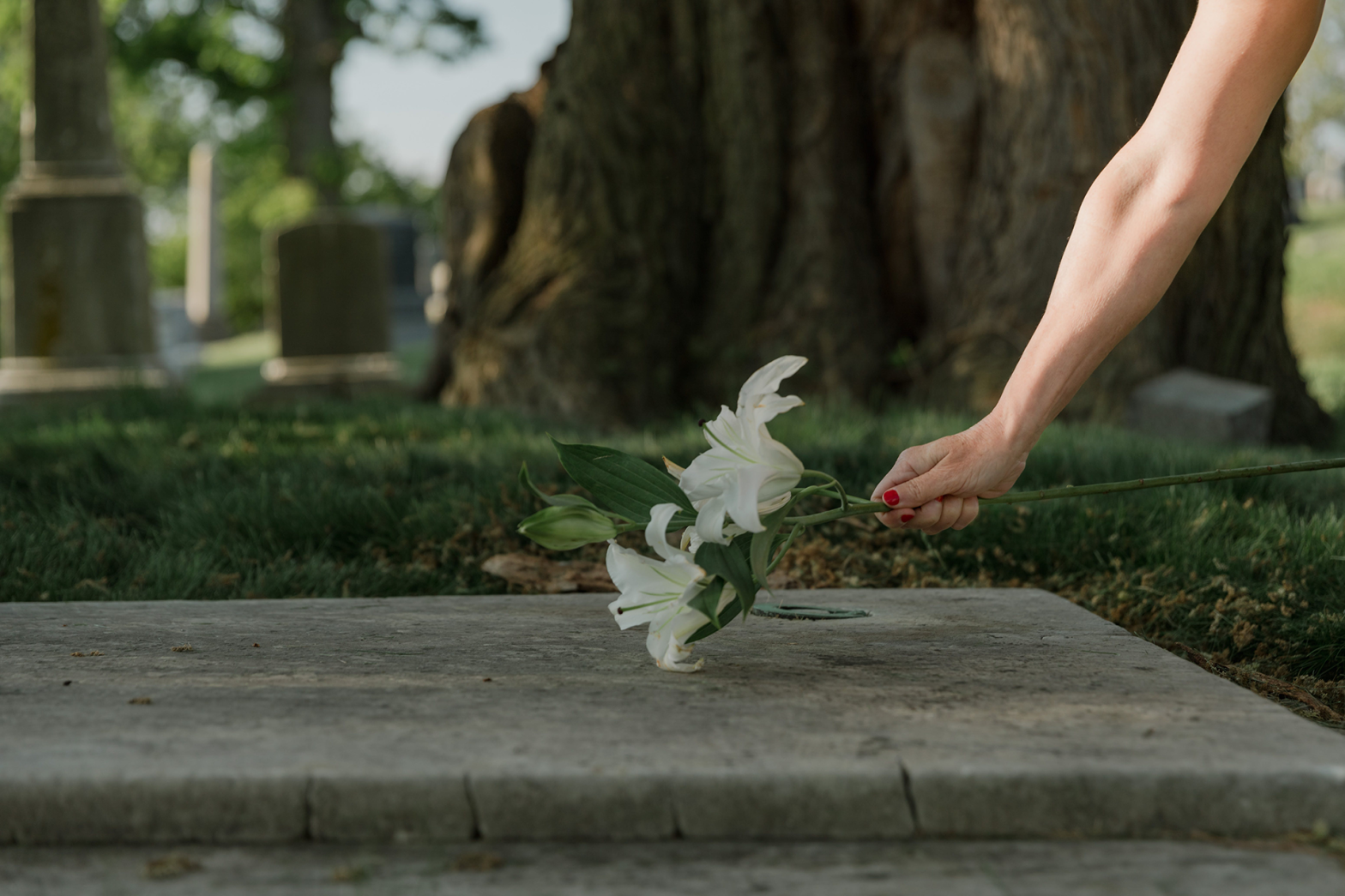The Law Of Death

With late Autumn being the spooky season, our Private Client Solicitors thought it would be a perfect opportunity to answer all your questions about death (in a legal context of course). A quick Google search will bring up thousands of articles about Wills, applying for Probate, and estate planning. But what about the actual law surrounding death? For example, “when is someone considered ‘legally’ dead?” and “can you be buried in your back garden?” To find out the answers to these and other fascinating questions, keep reading…and make sure the lights are on.
When is someone legally dead?
In the UK, someone is legally dead when they are declared brain dead by two doctors, one of whom must be a senior doctor. Brain death is a permanent, irreversible, and total loss of brain function. According to the NHS, for brain death to be declared:
- A person must be unconscious and fail to respond to outside stimulation.
- A person’s heartbeat and breathing can only be maintained using a ventilator.
- There must be unmistakable evidence that serious brain damage has occurred, and it cannot be cured.
A series of tests will be performed by doctors to check for brain functionality, including:
- Stroking the eyeballs with a tissue or piece of cotton wool.
- Inserting ice-cold water into the patient’s ears to see if the eyes move.
- Shining a torch into both eyes.
- Applying pressure to the forehead and pinching the nose.
- Placing a tube down the patient’s windpipe to see if they gag or cough.
- Disconnecting the patient from a ventilator to see if they make any attempt to breathe independently.
Brain death is diagnosed if a person fails to respond to all these tests.
Spooky trivia # 1 – Earlier this year a 74 year old Ecuadorian woman stunned funeral goers by knocking on the lid of her coffin. Five days later, Bella Montoya died from an ischemic stroke after spending a week in intensive care. An investigation has been launched as to why the hospital initially declared her ‘dead’ when she was actually alive.
When is a missing person presumed dead?
The Presumption of Death Act 2013 provides that an application to the High Court to declare a person presumed dead can be made if that person is thought to have died or who has not been known to be alive for at least seven years. If the declaration is made, the missing person’s marriage or civil partnership is ended and an application for Probate can be made if there is a valid Will.
When is an autopsy required?
An autopsy, also known as a postmortem, will be conducted if it is requested by:
- A coroner – because the cause of death is unknown, or following a sudden, violent, or unexpected death, or
- A hospital doctor – to find out more about an illness or the cause of death, or to further medical research and understanding.
The aim of an autopsy is to figure out the cause of death and decide whether an inquest is required.
Spooky trivia # 2 – During a postmortem on a woman who had worked as a tailor during her youth, the pathologist found several dressmaking pins and needles under her skin. These had never been picked up on x-rays or scans the lady had had throughout her life. Even stranger, there was also a pin lodged in her lung. The only explanation for this was that she inhaled it.
Reference: Strange and Surprising Items Found During Autopsies (ranker.com)
Can I be buried in my garden?
Yes, you can. You must own the land in which you wish to be buried and ensure that your ‘plot’ is far enough away from water sources and poses no threat to public health.
As far as planning permission goes, it is generally accepted that the burial of one or two bodies on private land does not change its use from a garden to a burial ground; therefore, planning permission is not required. But if you plan to erect a grand vault/ mausoleum then you will probably need planning permission. If you want to be buried in your garden, it is best to get legal advice regarding planning permission and whether the property title contains any covenants that may prohibit the burial.
Regarding what happens if the property is sold – unless a Property Law Solicitor places a restrictive covenant on the property’s title, new owners can dig up a body buried in their backyard and have it relocated. They can also refuse to allow family members to visit their loved one’s grave. And of course, knowledge that there is a body or two buried in the garden is likely to negatively impact the value of the property.
Spooky trivia # 3 – A remote house in North Wales became the subject of the BBC documentary Paranormal, after the owners moved a gravestone of a 15-year-old girl that had been propped up at the front of their home. Welsh words began to appear on the inside walls of the property and one night a figure was seen looking into the cot in which the owner’s baby was sleeping. Documentary makers discovered that the gravestone belonged to Jane Jones, who died while giving birth in 1778. Jane was denied the right to be buried in consecrated ground because of the disgrace of having a baby at 14. You can watch the documentary here.
Wrapping up
The law of death is a fascinating subject because geographical and cultural differences abound. For example, the Maasai people who live along the border of Kenya and Tanzania, did not bury their dead as it was believed to be harmful to the environment. Instead, they covered dead bodies in ox blood or animal fat and left it in the bushes for predators to devour. The custom was not based on neglect, rather the Maasai people do not traditionally believe in an afterlife; therefore, a person’s journey ends upon death. Only great chiefs were granted a burial. However, present day Maasai do now bury their dead.
If you require legal advice concerning what happens after a person dies, including applying for Probate or Letters of Administration, please call our office today on 02476 231000 or email via the Request a Callback form on this page.
Please note that this article is for information purposes only and does not constitute legal advice.









